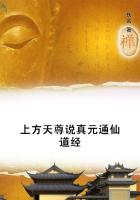H/E was the son of George Home, of Kames, a country gentleman of small fortune, in Berwickshire, married to a granddaughter of Principal Baillie.He was born in 1696, and was educated at home, under a private tutor.It was in after life that he devoted himself to the study of Greek and Latin, to which be added mathematics, natural philosophy, logic, ethics, and metaphysics.He was never at any university.He showed an early taste for philosophical speculation.It seems that he came in contact with Andrew Baxter, who was tutor to a son of Mr.Hay, of Drumelzier, and lived at that time at Dunse Castle, within a few miles of Kames, and the two had a correspondence; Home arguing that motion was not a single effect, but a continued succession of effects, each requiring a new or a successive repetition of the cause to produce it.Like so many others in the same age, he had a thrust at Clarke's " Demonstration {174} of the Existence of God," and wrote, in 1723, a letter to the doctor.Already he is drawing up arguments against liberty of will.Having chosen the law as his profession, he was called to the bar 1723-24.As a pleader he began with a very short and distinct statement of the facts f the cause and a plain enunciation of the question of law thence arising, abandoning all the weaker points of the case.He excelled more in ****** an opening statement than in reply.
We have a picture of his habits.He rose at five or six, and spent his morning in preparation for the business of the court.In the forenoon he was at the Court of Session, which, at that time, rose soon after mid-day.He did not go much out to dinner, as he needed all his time for business and study.In the evening, if he had leisure, he joined the ladies in the drawing-room, or took part in a game of cards, or might be seen at the concert or the assembly room."The evening was generally closed by a small domestic party, where a few of his intimate friends assembled, for the most part without invitation; found a plain but elegant little supper , and where, enlivened often by some of Mrs.Home's female acquaintance, the hours were passed in the most rational enjoyment of sensible and spirited conversation, and easy social mirth, till after midnight."Throughout his life he published various works on law and jurisprudence; beginning, in 1728, with a folio volume of " Remarkable Decisions of the Court of Session " from 1716 down to that period.In 1752 he was appointed a judge of the Court of Session, by the title of Lord Kames.
But his tastes ever led him towards metaphysical speculation.From 1727 he had been acquainted with David Hume, and he carefully studied his writings as they were published.It seems he had dissuaded the sceptic from publishing his "Philosophical Essays," and he felt himself called to oppose what he believed to be the extreme views there propounded.This gave rise, in 1751, to a work which produced a great noise in his own day, " Essays on the Principles of Morality and Natural Religion." It was published under the name of "Sopho." He shows that man is influenced by a great number and variety of principles, such as self-love, benevolence, sympathy, and utility, consonance to the divine will; and that his actions are most frequently the combined result of the opposite {175} springs, tempering and restraining each other's powers.He shows that man has, as a separate principle, in his nature and constitution, a moral feeling or conscience, the function of which is to judge with unerring rectitude of all his motives to action, and direct his conduct to one great and beautiful end, --the utmost happiness of his nature.In expounding these views, he examines Hume's theory, and shows that it annihilates all real distinction between right and wrong in human actions, and makes our preference of one or other depend on the fluctuating opinions of men in respect to the general good.In particular, he opposes Hume's view of justice, and shows that the idea of property is coeval with society, and that its violation is universally attended with a feeling of a breach of duty, which is the sentiment of justice.He sets himself specially to oppose Hume's attempt to undermine the arguments in behalf of the Divine Existence.
In developing his moral and esthetic views, in this and in other works, he enunciates his metaphysical principles.
He maintains that man can acquire intuitive knowledge from a single act of perception."It is an undoubted truth that man has an original feeling or consciousness of himself and of his existence." He maintains (" History of Man,") that there is a sense by which we perceive the truth of many propositions: such as that every thing which begins to exist must have a cause; that every effect adapted to some end or purpose proceeds from a designing cause; and that every effect adapted to a good end or purpose proceeds from a designing and benevolent cause.A multitude of axioms in every science, particularly in mathematics, are equally perceived to be true.By a peculiar sense we know that there is a Deity.From all this it is evident that he stood up for intuitive principles.















